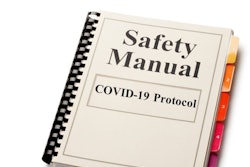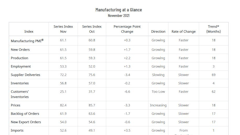
Across much of the nation, states have or are beginning to open up COVID-19 vaccine eligibility for all adults, over the age of 16. As more people are getting vaccinated and are returning to office workspaces in 2021, things may look extremely different than before the pandemic. New guidelines, workplace mandates, risks and even legal exposure are some of the issues employers are facing with the return of their employees.
The Equal Employment Opportunity Commission (EEOC), which enforces workplace anti-discrimination laws, released guidelines and advice for employers considering a mandatory vaccination program. However, before jumping in to a company wide mandate, there are some potential pitfalls to consider.
"Seeking proof of vaccination is a careful one," says Jack Sullivan, partner at Dorsey & Whitney LLP. "As an employer, you can ask for proof however you need to be absolutely clear and avoid asking for medical information."
Analysis of what the requirement will do and its lasting effects on your company (morale and operationally) is important. Keep in mind these factors when deciding to require mandatory vaccination of all workers:
- Who are your employees (see sidebar) and what is the response you might get after the announcement?
- Will the company make a public announcement about the mandate in your office to your vendors, customers etc. and what would that look like?
- What if your employees don't follow the mandate?
- How will your company handle the accommodation or exemption requests?
Can Employers Impose Vaccine Mandates?
Yes, as the EEOC has laid out (through their updated guidance), employers may lawfully require employee vaccinations. However, there may be some complexity including response from employees, how the mandate will work from beginning to end and accommodations to consider. Employees are entitled to reasonable accommodations and the employer has to ensure that they properly consider the exemption requests.
Accommodation Requests
There are two type of exemptions that can be implemented, religious and medical exemptions, that directly correlate to vaccine mandate compliance.
- Religious: Once an employer has notice that an employee’s sincerely held religious belief, practice, or observance prevents the employee from receiving the vaccination, the employer must provide a reasonable accommodation for the religious belief, practice, or observance unless it would pose an undue hardship under Title VII of the Civil Rights Act.
- Medical: Some people may be at risk for an adverse reaction because of an allergy to one of the vaccine components or a medical condition preventing them to receive the vaccine safely.
If an employee cannot get vaccinated because of a disability or sincerely held religious belief, practice or observance and there is no reasonable accommodation possible, then it would be allowable for the employer to exclude the employee from the workplace, i.e. telework or remote work (if their job can be completed this way). This does not mean the employer may automatically terminate the worker, according to the EEOC.
Encourage vs. Require
Depending on the business, employers should weigh out the benefits, negative impacts and costs to a mandatory vaccination program. Consider administrative costs, program implementation/training and legal compliance.
"Depending on company size, employers could consider putting someone in place as point person," says Marilyn Clark, partner at Dorsey & Whitney LLP. "Safety is a primary concern for the workplace to mitigate litigation risk. When employees are returning to work, provide adequate COVID-19 safeguards and utilize the CDC guidelines."
Employers should remember that guidance from public health authorities are changing as the COVID-19 pandemic evolves. Therefore, continue following the most current information on maintaining workplace safety.
Be prepared for some resistance from your employees if your company ops to enforce vaccine mandates. Company management/owner should consult with their human resource and legal teams to develop a program detailing the process, how it will work from beginning to end and how to accommodate all employees for the safest return. Carefully consider the potential litigation risks identified by the EEOC and its guidelines if you as an employer or your company wishes to mandate COVID-19 vaccines for all employees.




















